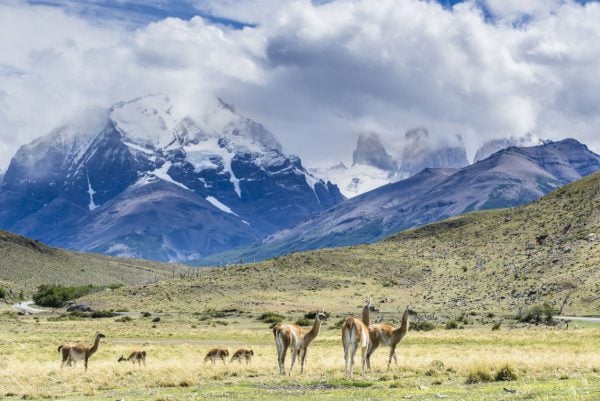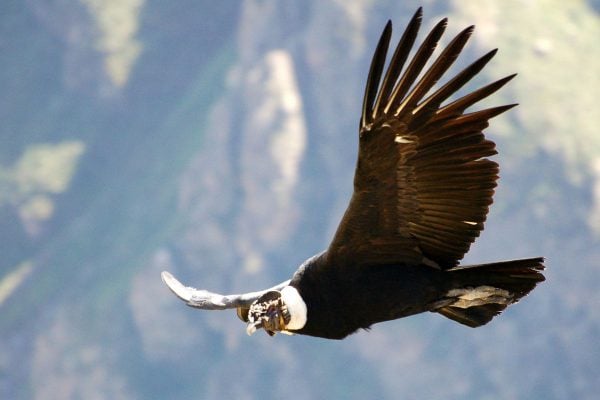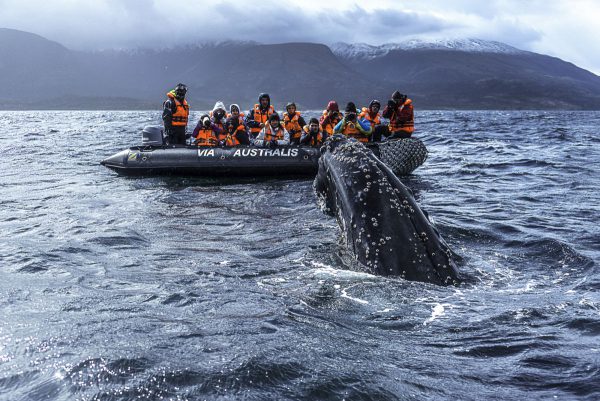From the sharp peaks of the Andes Mountains to the windswept plains of the pampas, Patagonia is a region containing a variety of ecosystems and habitats, making it an excellent place for a holiday observing wild animals. But how do you go about planning a vacation where you’re guaranteed to catch a glimpse of an elusive blue whale or can wander between nesting penguins?
Here are our top tips to ensure that you get to see the very best of Patagonia’s huge selection of wildlife.
Decide which types of wild animals you hope to see
Covering over 402,000-sq. miles (over 1 million km²), Patagonia is home to various ecosystems, from grasslands to mountains, wetlands and southern beech forests. As a result, planning a trip to see wildlife requires you to consider exactly what types of animals you’d like to see.
Marine animals:
- The Strait of Magellan – blue and humpback whales are most commonly sighted in the waters that separate Punta Arenas and mainland Patagonia from the Tierra del Fuego Archipelago.
- The Valdés Peninsula – in this UNESCO world heritage nature reserve on the Atlantic coast of Argentine Patagonia, it’s not unusual to see elephant seals, sea lions, southern right whales, pods of orcas and bottlenose and Commerson’s dolphins.
Land animals:

- Tamango National Reserve – one of the final remaining habitats of the national animal of Chile, the South American huemul.
- Torres del Paine National Park – a top place in Patagonia for puma spotting.
- Tierra del Fuego – guanaco and other land animals such as skunks and armadillos abound in this island at the southernmost end of Patagonia.
Birds:

- Isla Magdalena – the site of one of the largest Magellanic penguin colonies in Patagonia.
- Punta Tombo, Tuckers Islets and Bahía Inútil – the first two are the location of large colonies of Magellanic penguins, while the latter is home to the only king penguin colony in the Americas.
- Tierra del Fuego – the Chilean and Argentine national bird, the Andean condor, can be spotted soaring through the skies above this island.
You may also want to read our guides about wildlife to spot in other parts of Chile and animals and their habitats in Argentina to give you more inspiration for places in Patagonia suited to a holiday observing wild animals.
Read up on the best time for wildlife watching in Patagonia
It’s also essential to consider the best seasons for seeing different types of animals. While many of the land mammals such as pumas and guanaco are visible throughout the year, marine mammals, such as southern right whales and orcas, are only present in Patagonian waters during certain months of the year.
Consult our guide to exactly when to see wild animals in Patagonia for further information.
Consider booking a tour for your holiday observing wild animals
While much of Patagonia can be explored independently, to truly learn about the wildlife and nature of this remote region you should consider taking an organized tour. This not only improves your chances of seeing wildlife as you can rely on the expertise and local knowledge of your guide, but will see you learning far more about the environment and animals that you encounter.
 It’s possible to take puma spotting tours in Torres del Paine National Park, while expedition cruises through the Chilean fjords and the Strait of Magellan from Punta Arenas and Ushuaia can offer unrivaled chances of seeing native wildlife in some of Patagonia’s remotest parts.
It’s possible to take puma spotting tours in Torres del Paine National Park, while expedition cruises through the Chilean fjords and the Strait of Magellan from Punta Arenas and Ushuaia can offer unrivaled chances of seeing native wildlife in some of Patagonia’s remotest parts.
No comments yet
There are no comments on this post yet.






Leave a comment